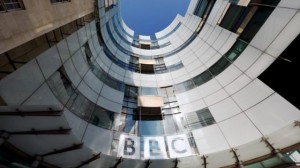
After more than 40 years of operation, DTVE is closing its doors and our website will no longer be updated daily. Thank you for all of your support.
Ofcom to impose wide range of quotas on BBC
 Ofcom is to force the BBC to air a diet of 90% UK-produced original programming during peak evening hours on its two main channels.
Ofcom is to force the BBC to air a diet of 90% UK-produced original programming during peak evening hours on its two main channels.
Introducing new rules as part of its expanded regulatory remit, the media and telecom watchdog said that from next year at least three quarters of all programming hours on the BBC’s main channels must comprise original productions commissioned by the BBC for UK audience, reaching 90% during peak hours on BBC One and BBC Two.
BBC Four will be forced to air the same 75% quote of UK programmes overall, with the peak-time requirement is reduced to 60%.
The move effectively stops the BBC from broadcasting US and foreign-language shows in primetime.
Ofcom is also to require the BBC to spend broadly the same on programmes per head in each of the UK’s constituent nations, and will introduce new quotas related to arts, music, comedy and kids programming.
Under the new rules, kids services CBBC and Cbeebies mush respectively show 400 and 100 hours of new UK-commissioned programming each year.
At least half of network hours on the BBC’s TV channels must be made outside London, with separate quotas introduced for each UK nation to reflect its population size.
Ofcom is also launching a review of guidance on programmes made outside London with the aim of strengthening production in the nations and regions.
Other measures include increased quotas for news and current affairs on BBC One and Two. BBC Radio 2 will also be forced to air at least three hours of news and current affairs in peak time each week, and Radio 1 will have to broadcast an extended news bulletin in peak time each week day.
Ofcom is also to make the BBC air more arts, music and religious programmes, including a requirement that BBC One airs at least 45 hours of arts and music programming a year and BBC Two airs at least 175 hours, and a requirement that BBC One and Two together air at least 115 hours of religious programming, including some in peak time.
Following recent unfavourable coverage of the BBC’s hiring practices, Ofcom said it would impose a quotea of 15% of staff to be from ethcnic minority grous and 50% of all staff and leadership roles to be filled by women by 2020. The watchdog said it would also carry out a review examining on-screen diversity and portrayal in the BBC’s programmes, including in its popular peak time shows.
Under new rules introduced by the government that became effective in April, Ofcom became the BBC’s first external regulator.
“The BBC is the cornerstone of UK broadcasting. But we think it can do more to provide quality, distinctive programmes that reflect the interests and lives of people across the UK,” said Kevin Bakhurst, Ofcom content and media policy director.
“Our rules will ensure the BBC focuses on original UK content, and invests in vital areas such as children’s programmes, music, arts and religion.”
A BBC spokesperson said: “These are a tough and challenging set of requirements which rightly demand a distinctive BBC which serves and represents all audiences throughout the whole UK. We will now get on with meeting these requirements and continuing to provide the world-class, creative BBC the public wants.”


